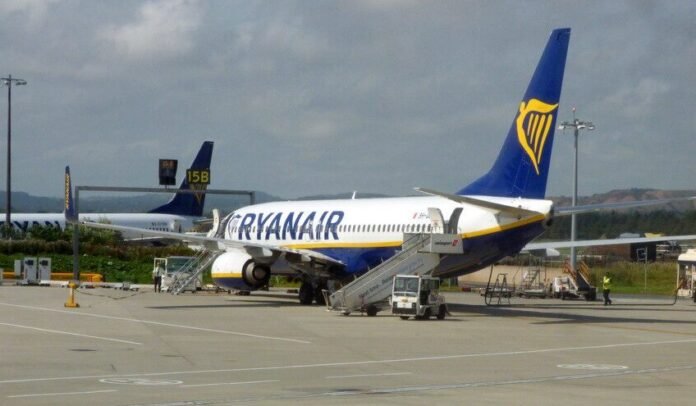A French strike has plunged Europe into travel turmoil—Ryanair blasts “airspace sabotage”
Tens of thousands of European holidaymakers were thrown into chaos as Ryanair was forced to cancel more than 170 flights, stranding over 30,000 passengers, after a French air traffic control strike crippled Europe’s skies on Thursday.
The disruption—worsening by the hour—is the result of a two-day strike by French air traffic control unions, which has sent shockwaves through airports in France, the UK, Spain, Greece, and beyond. Flights weren’t just grounded across France—planes attempting to pass through its vast airspace were rerouted or cancelled outright, leaving furious travellers scrambling for answers.
The budget airline’s outspoken CEO, Michael O’Leary, didn’t mince his words.
“They’re holding European families to ransom,” he blasted. “It’s abundantly unfair on EU passengers going on holidays.” He’s now calling on EU Commission President Ursula von der Leyen to intervene urgently, demanding guaranteed minimum service levels during air traffic strikes and legal protection for flights crossing French airspace.
The strike, organised by the UNSA-ICNA union, has already wiped out a quarter of flights at Paris’s Charles de Gaulle and Orly airports, and half of all flights at Nice. The French Civil Aviation Authority (DGAC) has asked all airlines to slash schedules, warning that Friday’s impact will be worse—with up to 40% of flights cancelled at major hubs.
The union blames staff shortages, management dysfunction, and a controversial clock-in system for the dispute. Talks with the DGAC collapsed earlier this week.
Philippe Tabarot, France’s transport minister, labelled the strike “unacceptable”, slamming both the timing and the unions’ demands. But that hasn’t stopped growing anger from across the continent.
Embed from Getty ImagesAirlines for Europe (A4E), the EU’s largest aviation trade body, called the situation “intolerable”, accusing France of hijacking summer travel for political leverage.
EasyJet, also hit hard by the strike, expressed “deep disappointment”, urging the French government to step in and end the disruption.
Inside terminals, the scenes were grim. Families stranded with toddlers, elderly passengers asleep on luggage, and information screens flashing “Cancelled” in four languages. On social media, travellers vented fury at what they called “air traffic terrorism.”
Though Ryanair flew over 109,000 flights in June, the airline noted that these cancellations—paired with wider global unrest—have compounded recent challenges. It blamed last month’s Middle East tensions for a further 800 flight cancellations.
Still, the airline says fewer than 1% of flights were affected, trying to downplay the disruption’s scale. But that’s little comfort to the thousands left grounded, rerouted, or forced to spend the night in overpriced hotels, unable to reach their destinations.
The fallout is growing. Business travellers, tourists, and seasonal workers alike are demanding answers. But with unions dug in and talks stalled, Europe’s skies may remain volatile well into peak travel season.
The battle now extends beyond just cancelled flights. For Ryanair and others, it’s about challenging a system that allows a single country’s strike to paralyse the continent’s airspace.
Until then, passengers remain pawns in a bitter crossfire—grounded, furious, and paying the price for someone else’s war in the control tower.
